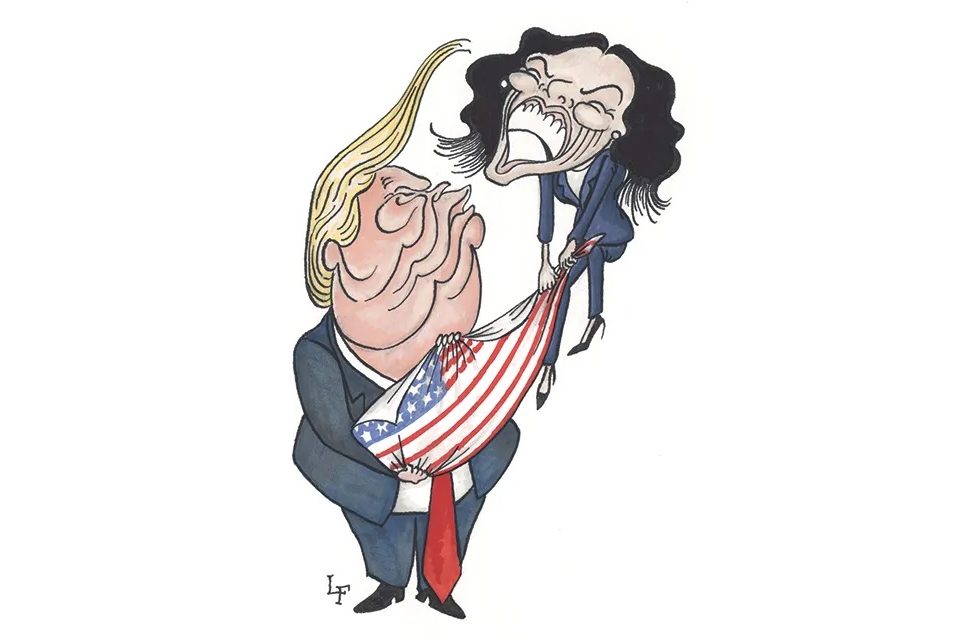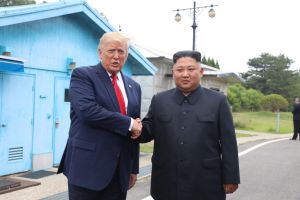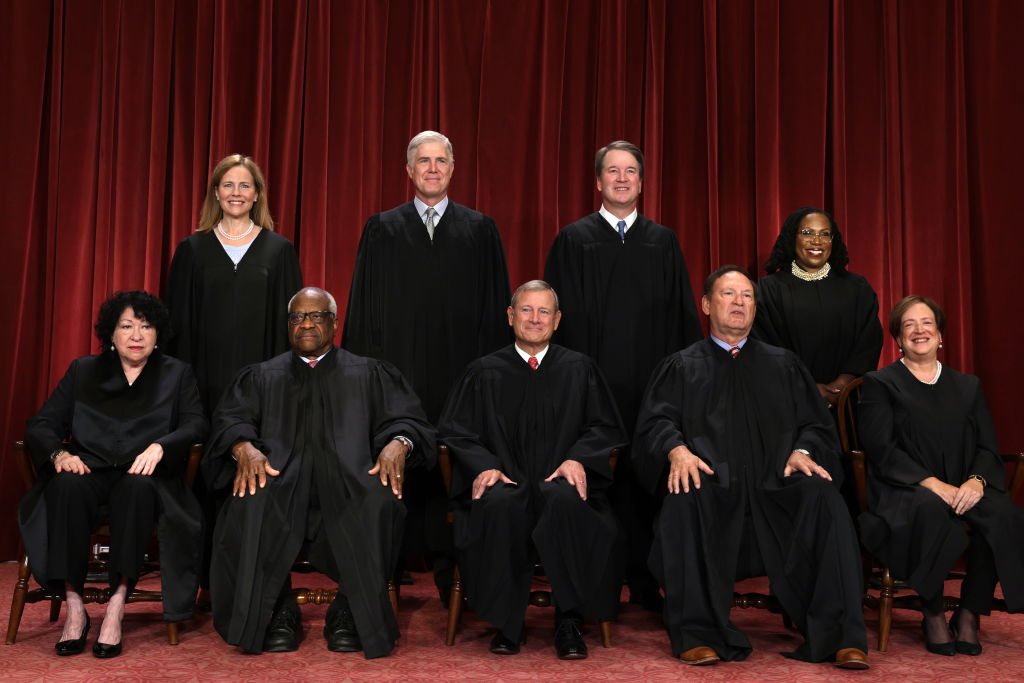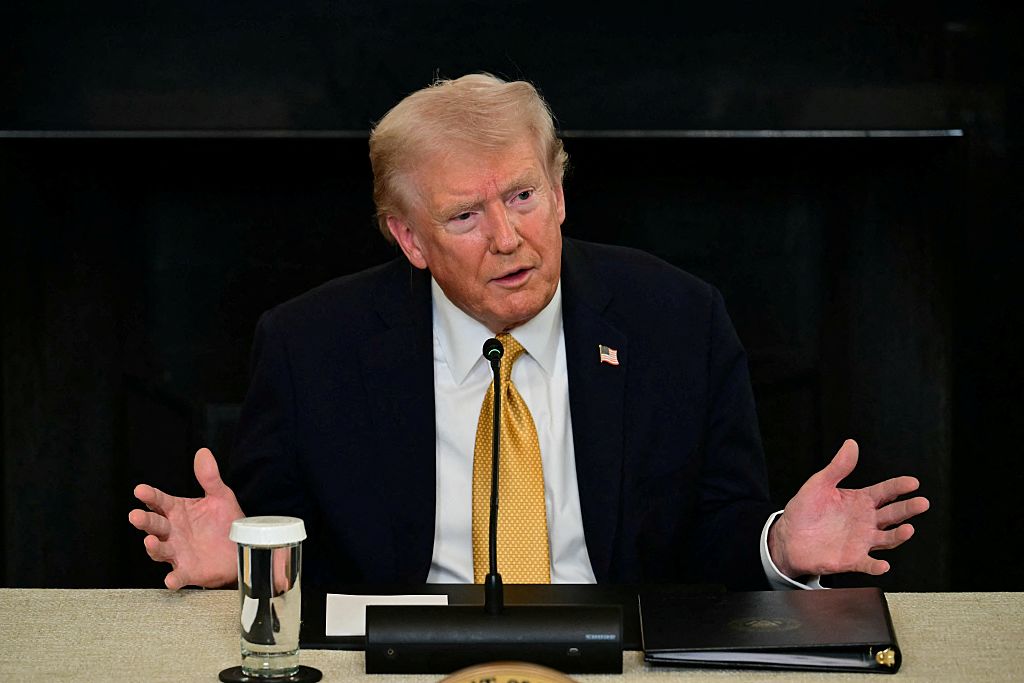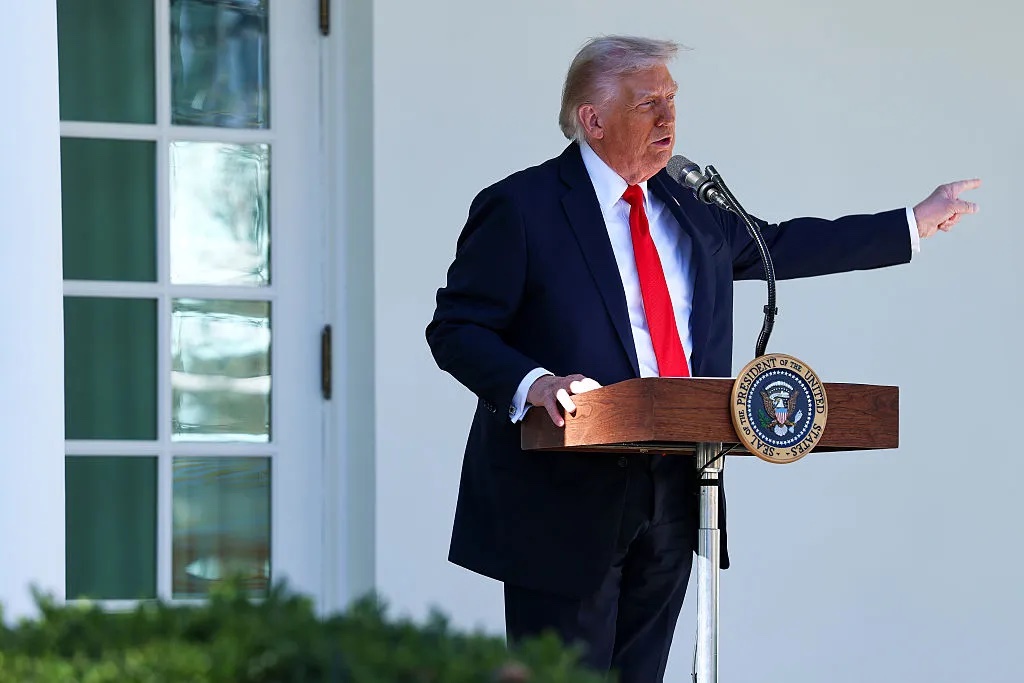For the past decade, Donald Trump has been the most famous and influential man on the planet. But he had too many failures and electoral defeats to his name to be able to claim he dominated a whole political era. That changed on Tuesday night.
Trump will be remembered as both the 45th and the 47th president of the United States. At the time of going to press, he is very likely to win full control of Congress. He is even likely to win the popular vote — making him the first Republican to do so in twenty years. All of this will allow him to impose his will on the nation to a much greater extent than he did during his first term in office.
Every country is vulnerable to this form of political appeal
Back in 2016, the whiff of aberration hung over Trump’s success. His opponents could maintain that his victory was a strange historical fluke. Some put it down to foreign interference. Political scientists confidently pronounced that he represented the final, Pyrrhic victory of a declining electorate — the last, desperate stand of the old white man.
But aberrations tend not to happen twice, and 2024 puts the last nail in the coffin of that distorted interpretation. Though some cable-news hosts may be tempted to replay their previous hits in the coming months, nobody will believe Trump is the Manchurian candidate this time around. It’s clear he put into action the advice given to the Republicans by Reince Priebus after the second defeat to Barack Obama: court minority voters who the party traditionally conceded to the Democrats. Trump’s victory is due not to old white men but to his success in building a deeply multi-ethnic coalition — as his crushing victory in Florida, a state that long ago became “majority minority,” attests.
The Democrats mistakenly tried to campaign on the idea that this election was about democracy and the future of the Republic. This tactic was wrong not only because voters care more about issues like inflation, but because the Democrats aren’t trusted on such issues any more than the Republicans. According to an exit poll in Pennsylvania, three out of four voters in the state believe that democracy in the US is threatened; but among those who do, it was Trump, not Harris, who had the edge.
This hints at the fundamental fact of the past decade, a fact that elite discourse has still not fully confronted: citizens’ trust in mainstream institutions has been shattered. Corporations and the military, universities and the courts, all used to enjoy a modicum of residual trust. That trust is now gone. It’s unlikely to return any time soon.
The extent to which most people now mistrust mainstream institutions is in many ways disproportionate. Despite Trump’s apocalyptic description of its current state, the US remains one of the most affluent and successful societies in the history of humanity. And while ideological excesses have significantly weakened America’s institutions in recent years, these institutions remain capable of impressive work. For every ridiculous article about racism in the knitting community that the New York Times publishes, it also prints sober reports about important world events.
And yet, the wound is self-inflicted. A small cadre of extreme activists obsessed with an identitarian vision of the world — a vision that pretends to be left-wing but in many ways parallels the tribalist view that historically characterizes the far right — has gained tremendous influence in recent times. And even those institutional insiders able to keep this influence at bay through clever rearguard actions were rarely willing to oppose them in explicit terms.
This was one of the most consequential vulnerabilities of Kamala Harris’s campaign. While running for the Democratic primaries in 2019, she wedded herself to a slew of wildly unpopular identitarias positions. Sensing the political winds had shifted, she did not reprise her flirtations with the idea of defunding the police or decriminalizing illegal border crossings. But neither did she have the courage to directly call out the ideological foundations of these positions — or to reassure millions of swing voters that she would be willing to stand up for common sense when doing so might risk inspiring a pushback within her coalition.
Trump is far outside the American cultural mainstream. (Yes, I believe that to be true even after his unexpectedly strong result.) But the problem is that Harris, the Democratic Party and the wider establishment institutions with which they are associated are also far outside the American cultural mainstream.
Harris’s campaign had many opportunities to address this issue. She could have asked her supporters not to self-segregate by race and gender the moment she became the nominee. She could have defended a woman’s right to choose without condoning late-term abortions and stood up for the value of vaccines while acknowledging pandemic-era overreach by public health authorities. She could have chosen to make her case to the millions of swing voters who listen to Joe Rogan’s podcast, the most popular podcaster in the country. But she did not do any of that. It’s unclear whether this was through fear and indecision or ideological conviction and a distorted perception of reality.
Trump has, since his entry into politics, been the spearhead of a populist international. And so his ability to come back from the political dead — reconquering the White House even after his refusal to accept the outcome of the 2020 election had seemingly rendered him radioactive — should serve as a loud warning to moderates in other parts of the world.
Brazilians managed to oust Jair Bolsonaro. Poles managed to send the Law and Justice Party to the opposition benches. It would be tempting to conclude that this closes the chapter on those political forces. But from the Peronists in Argentina to the Fujimoris in Peru, populists have, again and again, proved to be much more adept at returning to power than their contemporaries assumed.
This makes it all the more important for citizens of other countries to resist the temptation to judge Americans over the coming days. Already in the international media, especially in Europe, there’s been a tendency to blame Trump’s re-election on every conceivable stereotype about Americans as racist, sexist and bigoted.
But while every populist incarnates some of the particular qualities of their specific national context, it should by now be amply evident that every country is vulnerable to this form of political appeal. French and German elites have done a somewhat better job of protecting their nations’ institutions from the ideological capture that has contributed to the profound breakdown in trust in the American establishment. But many of the same trends are well under way in those countries too. And sooner or later, voters who strongly distrust their own institutions are likely to vote for an anti-establishment bullfighter of their own.
Until this week, it was still possible to hope that Trump would be remembered as a historical blip, an outsider who somehow turned a few elections into a contest over his ideas and personality, before exiting the political scene in disgrace. Today, it seems much more probable that he has cemented his standing as the figurehead of a political movement which will lastingly transform the politics of the US — and, perhaps, much of the democratic world.
Trump will almost certainly attack some of the constitutional checks on his power over the course of the next four years. He may very well sell out key American allies in central Europe and the Far East. Democrats should stand up to him when he does. That, after all, is the role of the opposition — and protecting the system of checks and balances that has allowed America to weather previous periods of deep partisan polarization must be a priority. And if Trump should overplay his hand, as well he might, he could quickly lose the support of those swing voters who just gave him such a resounding showing.
But Democrats would be making a big mistake if they simply reverted to the #resistance playbook which has failed to inflict a decisive defeat on Trump or his movement in the past. What they need to do if they want to ensure that the Trump era lasts fifteen rather than thirty or even fifty years is much harder than that: they must build a political coalition broad enough to win durable and sizable majorities against politicians of Trump’s ilk. And that will be impossible without a serious reckoning with the ways in which they, and the wider ecosystem for which they stand, have lost the trust of most Americans.
This article was originally published in The Spectator’s UK magazine. Subscribe to the World edition here.



